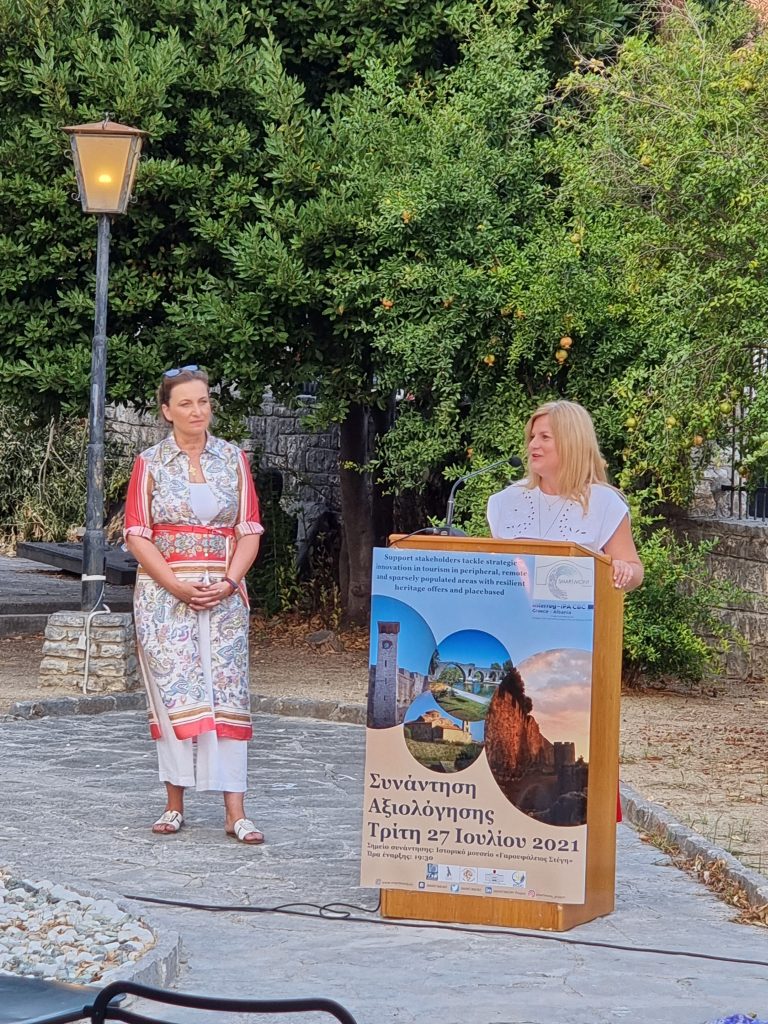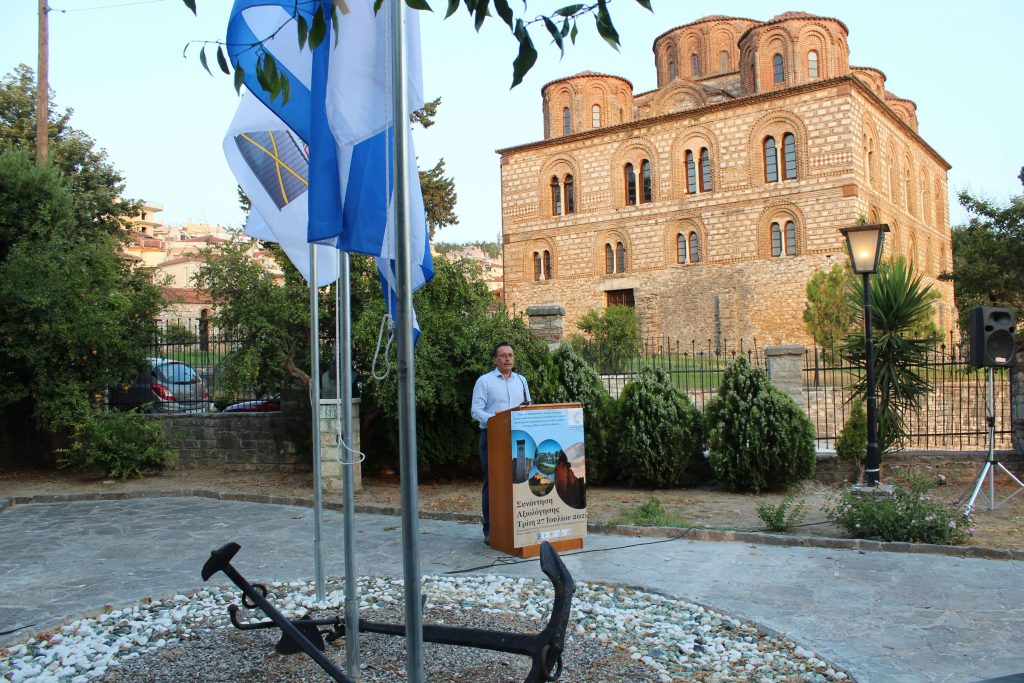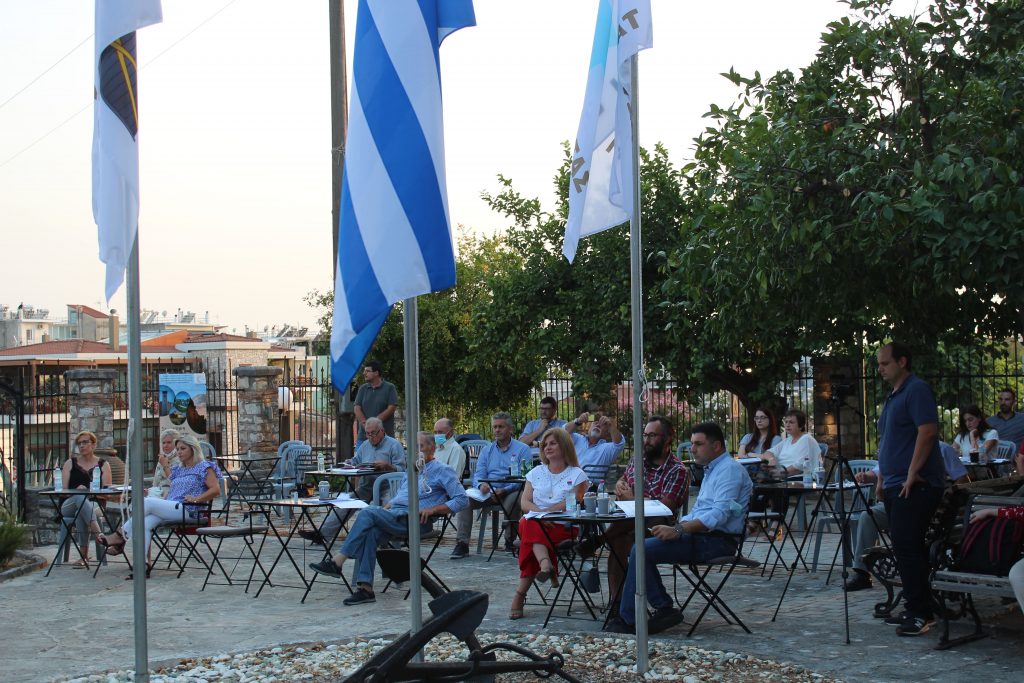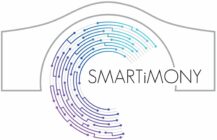2nd evaluation workshop in Arta
On Tuesday, July 27, 2021, in the afternoon session, the evaluation workshop took place in the courtyard of the Historical Museum “Garoufaleios Stegi” in Arta, Greece organized by LB-University of Ioannina. The participants, who had already participated in the morning study visit to important points of interest in the city of Arta, had the opportunity to discuss the promotion of the tourist image of Arta and the importance of its cultural heritage through the exchange of views, suggesting ways to make it more critical in spatial (global, national, regional, local), economic and social (nation, community, group, family, personal) scale.
Specifically, the event started with a greeting from Prof. Chrysostomos Stylios, scientifically responsible for LB-UoI, who referred to the use of new technologies to implement innovative tools such as multivision applications, e-books, virtual tours. He also mentioned how important it is to use the augmented reality in order to highlight the monuments of Arta worldwide.
Mrs. Anastasia Simou, thematic vice-governor, in her greeting, said the following: “Our place has created a culture, rich and durable over time. Artistic creations, aesthetic interventions, churches, bridges, and unique architectural constructions touch perfection and compose the grandeur of the Epirus region. At the same time, the way of life of the residents of Epirus-always in the service of man and in general his struggle for the defense of universal values and his resistance to the conquerors- paint this culture of our homeland. Technology advances and promotes new scientific achievements whose orthodox use will certainly contribute substantially to improving our quality of life. The need for the coexistence of technology and culture becomes insurmountable. The benefit will be great.”
“Ways to increase the levels of importance of the cultural heritage of Arta’s region”. In her presentation, she stressed the need to create an agenda of the importance of the region’s monuments in order to be included in the UNESCO World Heritage List. A monument is a public good. It is part of a citizen’s daily life and must somehow be integrated into his emotional and experiential sphere in order to become his most profound property and to be transformed into value, aesthetically and culturally. She also referred to the necessity of involving education for the new generations to understand the place where they live and its historical continuity. The suggestion of Dr. Dorothea Papathanassiou-Zuhrt, staff of LB-UoI, spoke about the “Role of digital culture in tourism development” with emphasis on the importance and necessity of the cultural narrative, especially for the new generation, in order to have a connection with cultural wealth and history. Dr. Papathanassiou-Zuhrt referred to the need to support Culture as it is a lever of economic and social development.
An open discussion followed in which participants presented very interesting proposals and action plans that could be implemented in the cultural and creative industry of the broader area of Arta. In the open discussion were heard suggestions from Schismenos Aristides, Teacher – Writer, Banias Konstantinos, Journalist – Researcher, Antonis Koliatsos, Mathematician – Historical Researcher, Yiannis Kaintasis, Lawyer-Publisher of the newspaper “APOPSI”, Liontos Nikolaos, Deputy Mayor of Finance of the Municipality of Arta, Patent Georgia, President of the Tourist Accommodation Association “Arachthos”, Nikolaos Badaloukas, President of the music philological association “Skoufas” and Skoulidas Elias, Assistant Professor of Modern History at the Department of Music, University of Ioannina.
The main topics of discussion concerned the Cultural & Creative Industries, which are internationally a new field of business with a significant contribution to the economy, society, culture, and tourism.
In addition, emphasis was placed on the utilization of digital technology applications in Culture, which make a dynamic contribution to the rational, sustainable, and productive management, promotion, and protection of cultural heritage, while creating new possibilities and opportunities for access to cultural goods in ways that were not possible utilizing traditional means.
Specifically, the event started with a greeting from Prof. Chrysostomos Stylios, scientifically responsible for LB-UoI, who referred to the use of new technologies to implement innovative tools such as multivision applications, e-books, virtual tours. He also mentioned how important it is to use the augmented reality in order to highlight the monuments of Arta worldwide.
Mrs. Anastasia Simou, thematic vice-governor, in her greeting, said the following: “Our place has created a culture, rich and durable over time. Artistic creations, aesthetic interventions, churches, bridges, and unique architectural constructions touch perfection and compose the grandeur of the Epirus region. At the same time, the way of life of the residents of Epirus-always in the service of man and in general his struggle for the defense of universal values and his resistance to the conquerors- paint this culture of our homeland. Technology advances and promotes new scientific achievements whose orthodox use will certainly contribute substantially to improving our quality of life. The need for the coexistence of technology and culture becomes insurmountable. The benefit will be great.”
“Ways to increase the levels of importance of the cultural heritage of Arta’s region”. In her presentation, she stressed the need to create an agenda of the importance of the region’s monuments in order to be included in the UNESCO World Heritage List. A monument is a public good. It is part of a citizen’s daily life and must somehow be integrated into his emotional and experiential sphere in order to become his most profound property and to be transformed into value, aesthetically and culturally. She also referred to the necessity of involving education for the new generations to understand the place where they live and its historical continuity. The suggestion of Dr. Dorothea Papathanassiou-Zuhrt, staff of LB-UoI, spoke about the “Role of digital culture in tourism development” with emphasis on the importance and necessity of the cultural narrative, especially for the new generation, in order to have a connection with cultural wealth and history. Dr. Papathanassiou-Zuhrt referred to the need to support Culture as it is a lever of economic and social development.
An open discussion followed in which participants presented very interesting proposals and action plans that could be implemented in the cultural and creative industry of the broader area of Arta. In the open discussion were heard suggestions from Schismenos Aristides, Teacher – Writer, Banias Konstantinos, Journalist – Researcher, Antonis Koliatsos, Mathematician – Historical Researcher, Yiannis Kaintasis, Lawyer-Publisher of the newspaper “APOPSI”, Liontos Nikolaos, Deputy Mayor of Finance of the Municipality of Arta, Patent Georgia, President of the Tourist Accommodation Association “Arachthos”, Nikolaos Badaloukas, President of the music philological association “Skoufas” and Skoulidas Elias, Assistant Professor of Modern History at the Department of Music, University of Ioannina.
The main topics of discussion concerned the Cultural & Creative Industries, which are internationally a new field of business with a significant contribution to the economy, society, culture, and tourism.
In addition, emphasis was placed on the utilization of digital technology applications in Culture, which make a dynamic contribution to the rational, sustainable, and productive management, promotion, and protection of cultural heritage, while creating new possibilities and opportunities for access to cultural goods in ways that were not possible utilizing traditional means.




